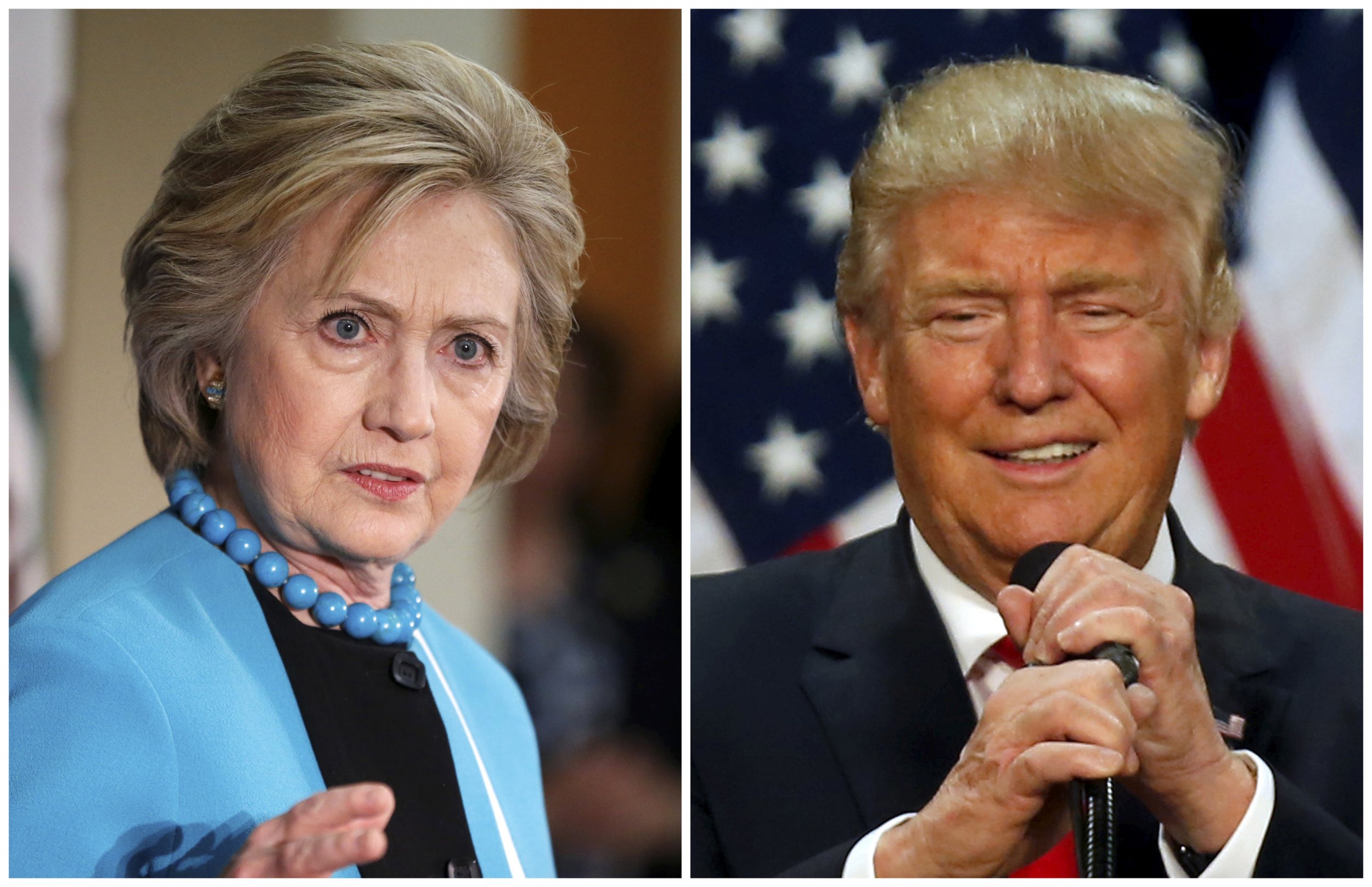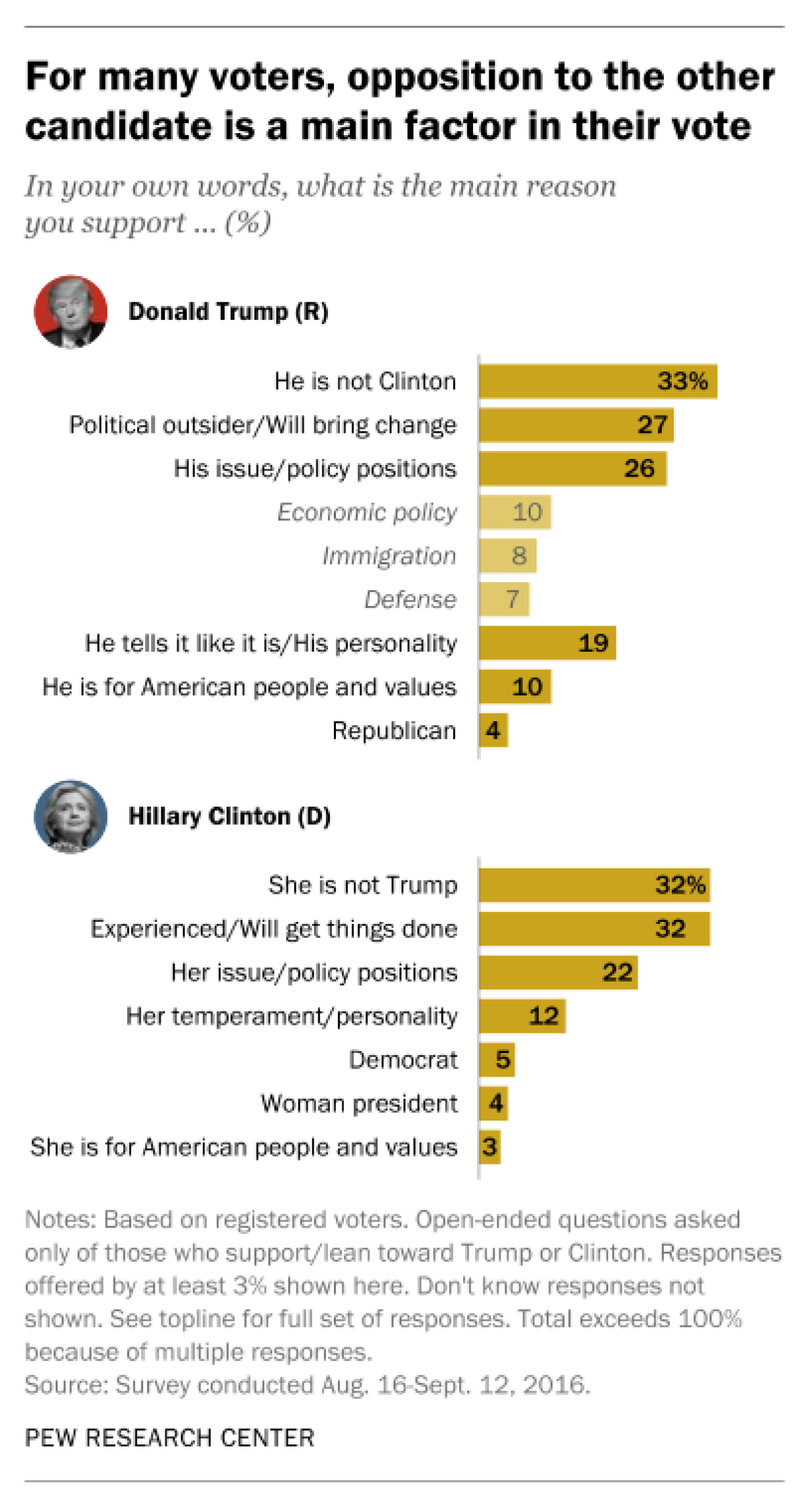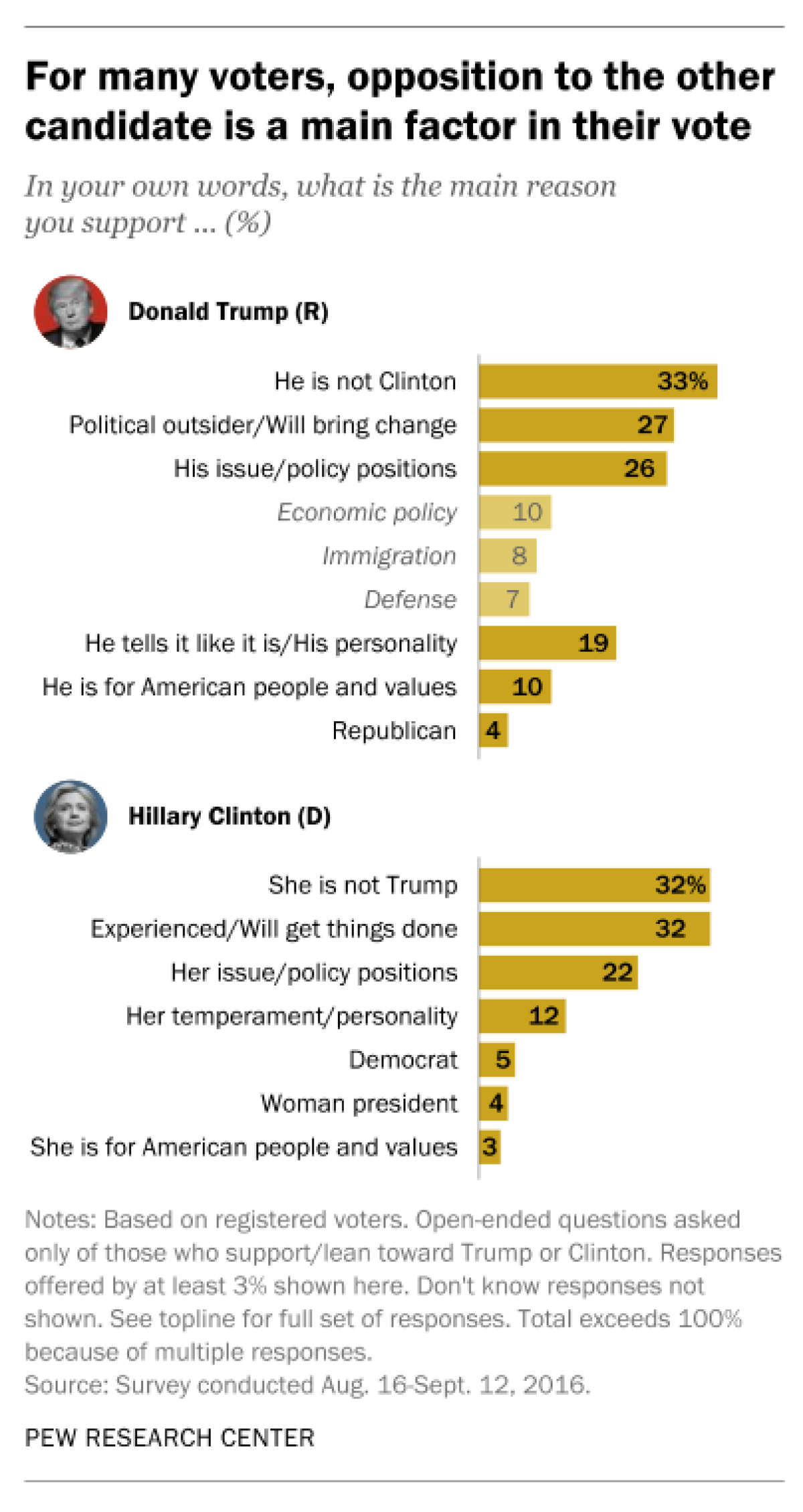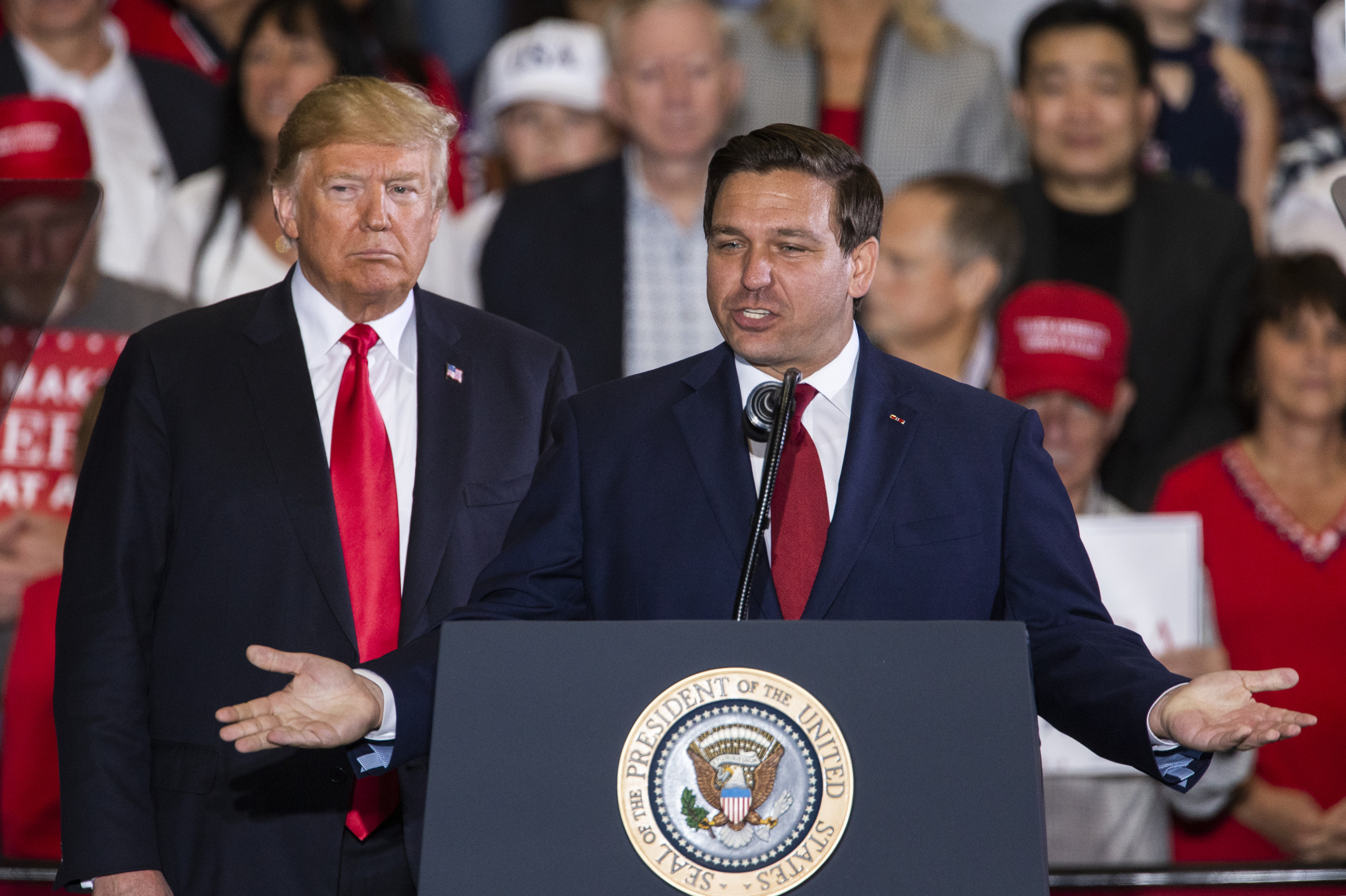
A new report from the Pew Research Center Wednesday confirms what Americans have been muttering under (and over) their breaths for months: Election 2016 is all doom and gloom.
The presidential race ultimately will come down to voting for a perceived lesser of two evils, the responses indicate. Thirty-three percent of Donald Trump supporters and nearly as many Hillary Clinton supporters (32 percent) frame their vote at least partially in opposition to the other candidate. Clinton's experience saves her from an utter lack of appeal; it's a factor of her campaign that her supporters mention as a reason for supporting her—the only reason they cite as frequently as the fact that she's not Trump.
Trump doesn't have many favorable non-non-Clinton qualities either, but the fact that he's an outsider candidate is why his polled supporters like him. Party affiliation isn't even listed as a primary reason for candidate support, and issues play little role in this election.
In this sense, the election has come down to a popularity contest—or, rather, an unpopularity contest.

The predilection to negativity and candidate opposition in the report is in line with previous research about the overall mood of this campaign. In a question released last week by Pew, just a third of voters say they're satisfied with the choices for president this year—that's far less than it's been in previous election cycles. Larger shares of people characterize their vote as a vote against Trump among Clinton supporters—or against Clinton among Trump supporters—than in the 2008 election, where people were more likely to characterize their vote as a vote for Barack Obama or for John McCain. But this time, Pew went a little deeper.
For the first time, Pew asked survey respondents to describe in their own words why voters support and have concerns about Clinton and Trump—and the results are quite rich. Asked "what is the main reason you support Donald Trump for president?," a 50-year-old woman responded, "He is outside of the political corruption that has taken over the country. Like him or not, he is our only chance to right this sinking ship. Hillary Clinton represents everything that is wrong in government. SHE CAN NOT BECOME PRESIDENT!!"
Ouch.
Negativity isn't always the only thing that a voter will express, says Jocelyn Kiley, associate director of research at Pew and one of the lead authors of the report. It's just the only thing voters can really focus on this time around. "They'll often combine a negative reason with a positive reason. So someone might say, for instance, that Hillary Clinton is highly qualified, and we also need to do everything we can to defeat Donald Trump," Kiley says. "So voters aren't necessarily completely negative in their reasons for voting...but [this time] for both Clinton supporters and Trump supporters, the negative sentiment rises to the top. It's more common than anything else."
The report also includes lots of hard data on how much and why many respondents reported disliking both candidates, and how relieved they expect to be when the election is over. No one is excited. Far more Clinton and Trump supporters say they would feel relieved than excited if their candidate wins, compared with voters in previous elections.

Come November 8, voters can breathe a sigh of relief—the dark cloud that is Election 2016 will have lifted. But with one of two relatively unpopular candidates in charge, will that exhaustion ever fully fade?
Uncommon Knowledge
Newsweek is committed to challenging conventional wisdom and finding connections in the search for common ground.
Newsweek is committed to challenging conventional wisdom and finding connections in the search for common ground.
About the writer
After several years tweeting in Washington, D.C., Joanna Brenner moved to New York to become Newsweek's digital strategy editor. She was ... Read more
To read how Newsweek uses AI as a newsroom tool, Click here.








